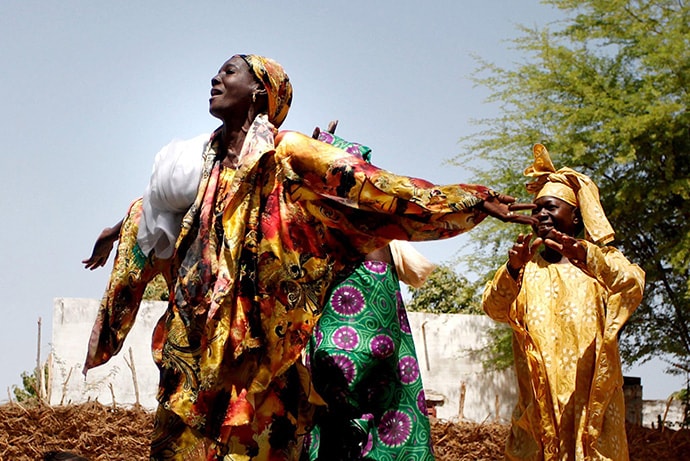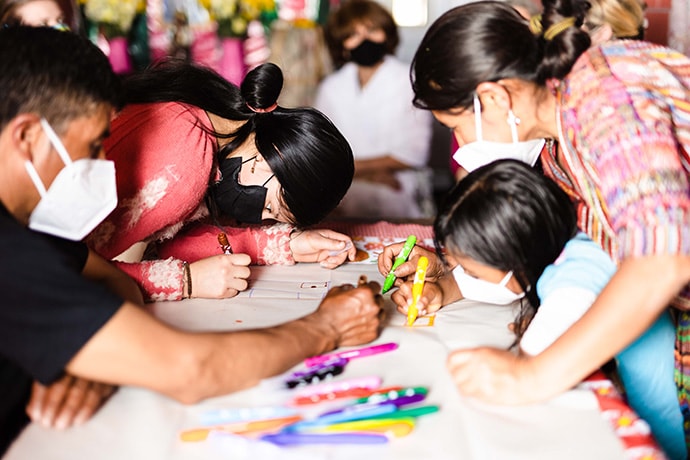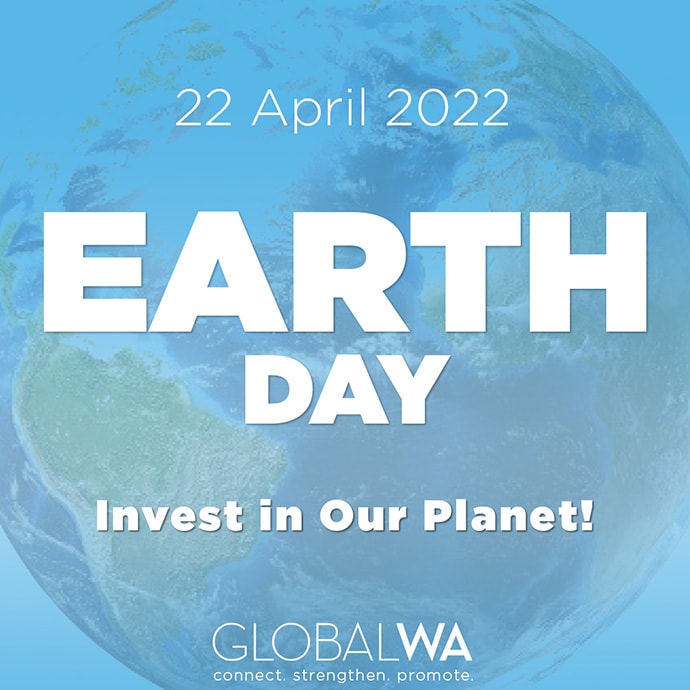Blog
Posted on April 29, 2022
Women and local communities will be first to face climate change and other emerging risks. Let’s engage and support them as the central actors they are.
From the Tostan team

Two Senegalese women dancing in celebration. Photo: Tostan.
As April comes to a close, many people are discussing Earth Day with a renewed sense of urgency given the bleak news on climate change and realization that rapid action is needed.
This offers an important moment to consider the challenges women, girls, and communities will face as climate change accelerates. These challenges join many others already confronting them. Yet this need not be only a negative story: Imagine the potential if women and girls could contribute their very best to develop and elevate solutions for positive change—in climate change and the other issues they face.
Continue Reading
Posted on April 25, 2022
By Laura Baerwolf, Director of Operations, Mona Foundation

Family engagement activity led by MAIA mentor during home visit. Photo: Mona Foundation.
For the past 23 years, Mona Foundation has worked to alleviate global poverty through education, gender equality, and community transformation. We currently partner with 26 grassroots initiatives in 15 countries to educate and empower over 800,000 students in need, particularly women and girls. While it is widely accepted that investing $1 in education adds $10 in economic growth, in Mona’s experience, educating a girl multiplies this impact by 100. Educated women tend to marry at a later age, have fewer and healthier children, earn higher incomes, spend 90% on their families, and directly impact the development of their communities. All these factors help lift households out of poverty, benefit generations, and transform communities.
Continue Reading
Posted on April 22, 2022

Earth Day, or International Mother Earth Day as it’s called in some counties, is celebrated each year on April 22nd and is celebrated in over 190 countries. Initially Earth Day was founded in 1970 through the efforts of US senator and environmental activists Gaylord Nelson as a protest of our deteriorating environment. According to World Economic Forum, “The Earth Day demonstrations [of 1970] left an indelible mark on US policy. By the end of 1970, the US Environmental Protection Agency came into being and a stream of laws followed to help protect the environment. These included the National Environmental Education Act, the Occupational Safety and Health Act and the Clean Air Act. Further legislation was soon introduced to protect water quality, endangered species and to control the use of harmful chemicals and pesticides.”
Yet now the movement has built awareness and is a driver of action, for example joint demonstrations, projects and efforts to help protect the planet.
Continue Reading


